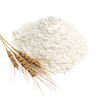Sign In Chef

By using our free meal planner (and the rest of spoonacular.com) you have to agree that you and only you are responsible for anything that happens to you because of something you have read on this site or have bought/cooked/eaten because of this site. After all, the only person who controls what you put in your mouth is you, right?
Spoonacular is a recipe search engine that sources recipes from across the web. We do our best to find recipes suitable for many diets — whether vegetarian, vegan, gluten free, dairy free, etc. — but we cannot guarantee that a recipe's ingredients are safe for your diet. Always read ingredient lists from the original source (follow the link from the "Instructions" field) in case an ingredient has been incorrectly extracted from the original source or has been labeled incorrectly in any way. Moreover, it is important that you always read the labels on every product you buy to see if the product could cause an allergic reaction or if it conflicts with your personal or religious beliefs. If you are still not sure after reading the label, contact the manufacturer.
We also attempt to estimate the cost and calculate the nutritional information for the recipes found on our site. Again, we cannot guarantee the accuracy of this information. Additionally, our nutrition visualizer that suggests that you limit sodium, sugar, etc., and get enough protein, vitamins, and minerals is not intended as medical advice. Similarly, our health tips are based on articles we have read from various sources across the web, and are not based on any medical training. The team behind spoonacular does not possess any medical qualifications and the information may be found to be incorrect or out of date based on future research. If you need help planning your diet or determining which foods (and recipes) are safe for you, contact a registered dietitian, allergist, or another medical professional.
Spoonacular is not responsible for any adverse effects or damages that occur because of your use of the website or any information it provides (e.g. after cooking/consuming a recipe on spoonacular.com or on any of the sites we link to, after reading information from articles or shared via social media, etc.)
×$3.25 per serving

1 likes

Ready in 45 minutes

Spoonacular Score: 74%
Grilled Chicken Pasta With Gorgonzola Walnut Cream Sauce requires approximately 45 minutes from start to finish. This recipe serves 6. For $3.25 per serving, this recipe covers 35% of your daily requirements of vitamins and minerals. This main course has 855 calories, 56g of protein, and 40g of fat per serving. A mixture of butter, flour, sage, and a handful of other ingredients are all it takes to make this recipe so flavorful. 1 person found this recipe to be tasty and satisfying. It is brought to you by Foodista. It is perfect for The Fourth Of July. All things considered, we decided this recipe deserves a spoonacular score of 68%. This score is good. Similar recipes are Chocolate Pasta with Gorgonzola Cream Sauce and 10 Romantic Pasta Dishes, Chocolate Pasta with Gorgonzola Cream Sauce and 10 Romantic Pasta Dishes, and Grilled Filet Mignon with Gorgonzola Cream Sauce.
No one wine will suit every pasta dish. Pasta in a tomato-based sauce will usually work well with a medium-bodied red, such as a montepulciano or chianti. Pasta with seafood or pesto will fare better with a light-bodied white, such as a pinot grigio. Cheese-heavy pasta can pair well with red or white - you might try a sangiovese wine for hard cheeses and a chardonnay for soft cheeses. We may be able to make a better recommendation if you ask again with a specific pasta dish.
































Read the detailed instructions on Foodista.com – The Cooking Encyclopedia Everyone Can Edit